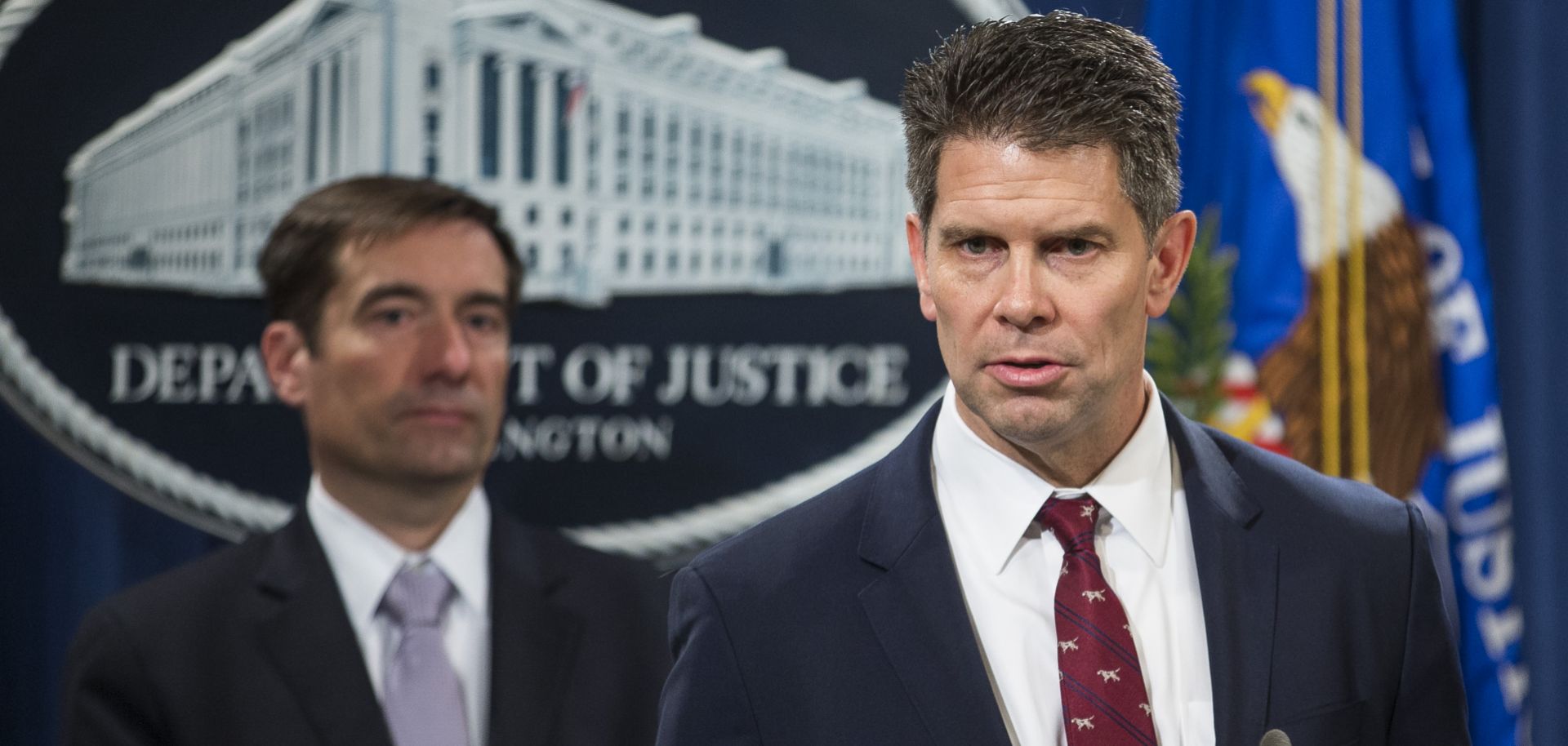COLUMNS
China's Corporate Espionage Looms Large in Its Battle With the U.S.

Nov 6, 2018 | 09:00 GMT

Deputy FBI Director David Bowdich speaks at a news conference in Washington, D.C., on Nov. 1 regarding new law enforcement action against China's economic espionage activities. U.S. authorities hope to counteract some of Beijing's spying activities, although U.S. firms could find themselves in the crossfire as China retaliates.
(ZACH GIBSON/Getty Images)
Highlights
- A series of court documents and statements by U.S. government officials have highlighted China's corporate espionage efforts once more, suggesting that Beijing will continue to prioritize the theft of trade secrets.
- Building on their work in monitoring the activities of Chinese intelligence officers and hackers, U.S. agencies like the FBI and others are redoubling their efforts to oppose Beijing's spying activities.
- As the espionage/counterespionage battle grows between the United States and China, U.S. companies and organizations operating in China could suffer the consequences, even if they do not consider themselves to be targets of spying.
Subscribe Now
SubscribeAlready have an account?
